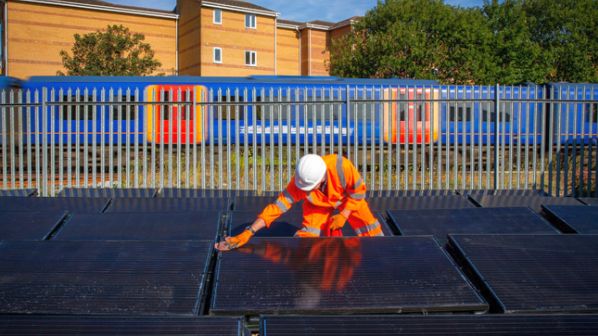Science-based targets are validated by the Science Based Targets Initiative (SBTi), a collaboration between environmental non-profit organisation CDP, the United Nations Global Compact, World Resources Institute, and the World Wide Fund for Nature (WWF).
SBTi has verified and approved NR’s targets, which include:
- a commitment to reduce absolute scope 1 and 2 greenhouse gas emission by 46% by 2029
- a commitment that 75% of its suppliers, calculated by emissions covering purchased goods and services and capital goods, will have science-based targets by 2025, and
- a commitment to reduce absolute scope 3 indirect emissions by 28% by 2029
Scope 1 and 2 emissions are within NR’s control, while scope 3 are indirect.
“Rail is already the cleanest and greenest mode of transporting large numbers of people and freight, but we’re committed to cutting our carbon footprint even further,” says NR chief executive, Mr Andrew Haines. “That’s why we’ve set carbon reduction targets backed by science rather than simply ones we think are easy to achieve. We are the first railway in the world to set targets that will help limit global warming to 1.5oC and this shows our commitment to change.”
NR is already making progress to reduce its greenhouse gas emissions, with all energy used to power stations, depots and offices coming from renewable sources, and a trial to deploy an entirely electric road fleet underway.
The company is also exploring how it can generate renewable electricity as well as ways to support improved biodiversity. An extensive community tree planting scheme is also underway.
With around two-thirds of the railway’s emissions generated by suppliers, NR says it is keen to support manufacturing and construction companies in its supply chain to set their own targets.
“Most of our carbon emissions come from our supply chain, so we need to give our suppliers confidence that we are serious about this and must make the changes needed to meet these challenging targets,” says NR’s safety, technical and engineering director, Mr Martin Frobisher.
“Many of our suppliers are already making great strides to this end which we can learn from. Working with them to find creative engineering solutions and clever ways to reduce the energy we consume, for example, is key to delivering these targets.”
NR recently published its long-term environmental sustainability strategy, which sets out four pillars to focus future efforts.

